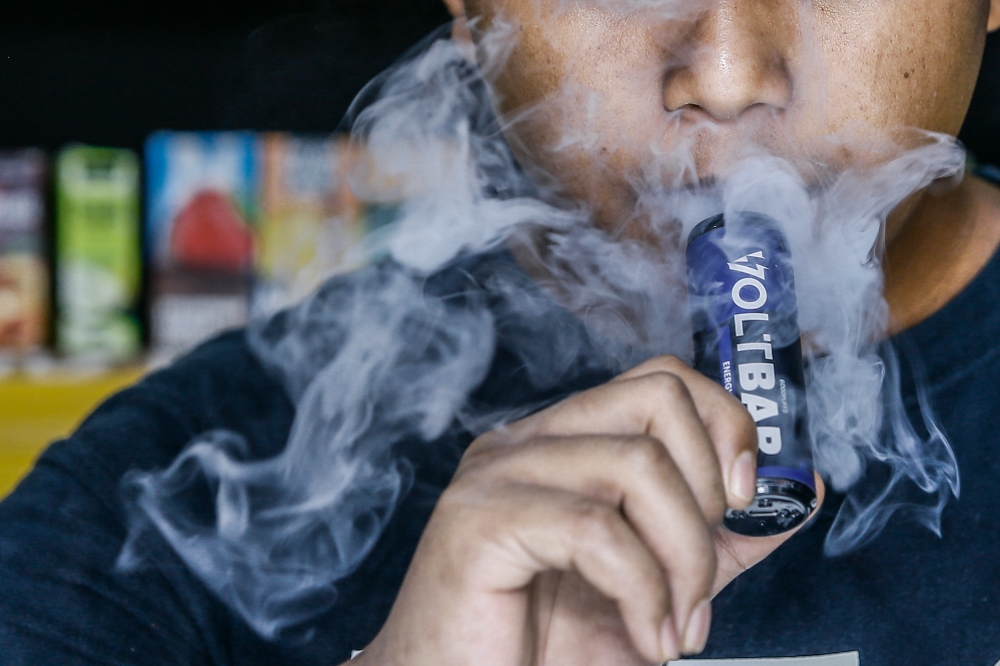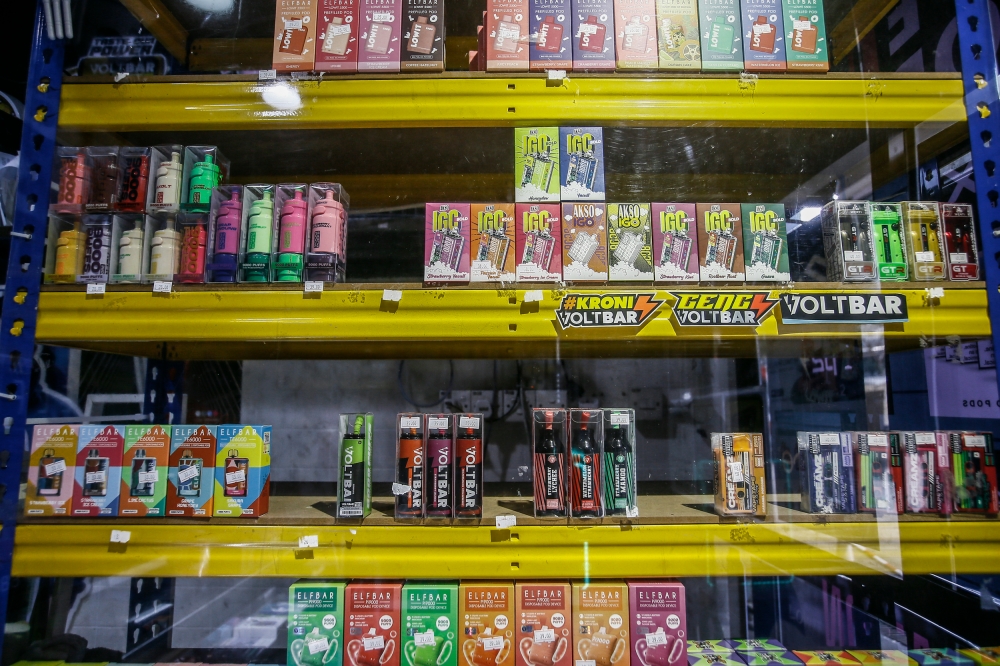KUALA LUMPUR, April 4 — Late last month, the federal government exempted nicotine as a controlled substance under Poisons Act as part of a move to tax its use with electronic nicotine delivery systems (ENDS) such as vaporisers and e-cigarettes.
Response to this was mixed, with the vape industry lauding it as a critical step towards regulation while healthcare organisations criticised it.
Malay Mail compiled the information provided by the ministry and news reports to explain the topic.
What is the issue?
According to a statement by Malaysia Retail Electronic Cigarette Association (MRECA) on March 29, the move to exclude liquid nicotine under the Poisons Act would allow the government to introduce proper regulatory frameworks such as those from developed Commonwealth countries such as the United Kingdom, New Zealand and Canada.
It said that the Act was an unsuitable framework for vape products containing nicotine and the exemption would allow proper regulation through amendments of existing laws such as the Control of Tobacco Product Regulations 2004.
However, the day before, the Malaysian Pharmacists Society (MPS) urged the government to reject the proposal and to take action to protect public health and safety, adding that the move to exclude liquid nicotine would “send the wrong message to the public”.
The Poisons Act 1952 regulates the importation, possession, manufacture, compounding, storage, transport, sale and use of poisons.
Nicotine previously fell under the purview of the Act, which stated that it, along with all preparations of tobacco, was classified as a Group C poison for the purposes of the legislation.
Liquid nicotine is a concentrated form of substance that maybe contained in propylene glycol, glycerine, or other chemicals. It is often combined with flavourings when used with vape liquids.
Who is involved?
On one side are the ENDS industry players, some of whom sell vape liquids that already contain nicotine despite this being technically illegal. One argument for the move towards regulation and taxation was the ubiquitous availability of such liquids both locally and from abroad.
On the other are healthcare professionals pushing back, such as the Malaysian Medical Association which cited concerns that removing nicotine as a controlled substances under the Poisons Act will allow vapes to be legally and openly sold to children of any age.
It said that the removal of nicotine from the Poisons Act before passing the Tobacco Control Bill will give children open access to vape products containing nicotine, possibly leading to a new generation of addicts.
There is also the Poisons Board, which was established under the Poisons Act. An unnamed source told online health news site Codeblue that the board had unanimously opposed the government’s move to declassify liquid nicotine as a controlled substance after a meeting it held last Friday (March 31).
In between the two sides is the Ministry of Health (MoH).

When did the issue begin?
It started when Khairy Jamaluddin, as the then health minister, announced a Generational End Game for smoking in the country in February last year.
National news agency Bernama reported him as saying that a new law would be introduced to ban smoking and possession of tobacco products, including vape, for the generation born after 2005.
The Bill for this was first tabled in June 27 that same year, but it was then referred to the Parliamentary Special Select Committee to be examined and for recommendations for improvement.
Following that, the MPS called on MoH to conduct nationwide checks and raids on sales of nicotine products by those who are not licensed under the Poisons Act, especially vape retailers.
Amrahi said that under the Act, nicotine is a Class C poison that can only be procured and dispensed by licensed pharmacists and medical practitioners.
The issue was revived after the tabling of the Budget 2023 in February by Prime Minister Datuk Seri Anwar Ibrahim when he revealed plans for the government to impose an excise duty on liquid or gel products containing nicotine, with half the revenue to be allocated to the MoH.

Where does the issue stand right now?
Last Friday (March 31), the federal government gazetted an excise duty for vape liquids with nicotine content at 40 sen per millilitre.
The new duty came into effect on the day after, following the commencement of Excise Duties (Amendment) Order 2023.
The Excise Duties (Amendment) Order 2023 was delivered by Anwar in his role as the prime minister under subsection 6(1) of the Excise Act 1976.
Health Minister Dr Zaliha Mustafa said on Saturday (April 1) that her ministry will table a new law to regulate nicotine use which will include the Generation End Game (GEG) policy.
Her ministry aims to present the new Bill immediately at the next Parliament sitting in May, she said.
MMA will also be meeting with the MoH on Thursday (April 6) regarding the issue, according to a statement by its president.
The association had planned to hold a press conference on the matter on April 3, but due to the meeting decided to postpone the press conference till after the meeting had been held.






















